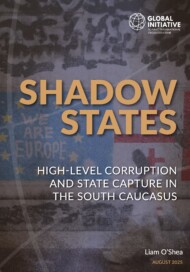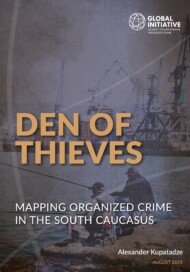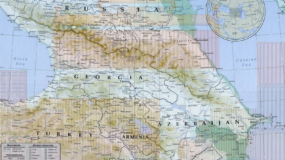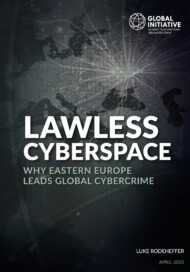Posted on 28 Aug 2025
Over the last 35 years, the South Caucasus has undergone profound economic and geopolitical transformations. Yet beneath these changes, certain systems of governance have persisted, cultivating and enabling high-level corruption and state capture, organized crime and illicit economies.
This report examines how informal governance, structures and relationshipsenable and shape corruption and illicit economies across Armenia, Georgia and Azerbaijan. It reveals how historic governance practices, domestic politics and wider geopolitics have combined in different ways in each country, creating various levels of corruption and state capture.
The report identifies three main levels of corruption:
- Petty corruption: Routine bribery and small-scale abuse of public office, typically at the point of service delivery.
- High-level corruption: Manipulation of laws, policies and regulatory frameworks by elites to advance specific interests
- State capture: Systematic subordination of formal institutions to informal networks, enabling elites to shape rules and resources for private gain.
The prevalence of each level depends on the governance patterns in place. For instance, Azerbaijan exemplifies consolidated state capture, with political and economic power concentrated in the hands of a core group of elites. Investigative reporting has exposed how the intricate system works, with complex schemes using offshore companies, strategic control of the banking sector and manipulation of public procurement processes.
Georgia has regressed toward consolidated state capture since 2012. High-level corruption is again endemic, with the political elite having co-opted formal institutions and key economic sectors by manipulating procurement processes and state resources.
Armenia has reduced petty corruption since the 2018 Velvet Revolution, but high-level corruption persists. Questionable investigations and cases involving figures close to the government undermine trust in reforms.
Across the region, informal governance dominates, blurring boundaries between state, business and illicit activity. Formal institutions and decisions are often subverted to the interests of elites, creating fertile ground for organized crime.
Declining Western influence, growing ties with authoritarian states and ongoing conflicts have created new opportunities for criminal actors and illicit activity. Regional conflicts have fostered smuggling hubs and provided cover for corrupt practices. Sanctions evasion has deepened economic integration with illiberal countries, embedding elite-controlled networks into the global economy.
High-level corruption and state capture constrain development, distort markets and undermine trust in institutions. While reforms in some areas—such as reducing petty corruption—have shown progress is possible, entrenched systems of governance continue to resist meaningful change.
This report provides a detailed mapping of how corruption manifests in each country, the networks and governance patterns that sustain it, and the geopolitical and historical factors that reinforce it. It also highlights faint opportunities for reform, including strengthening independent oversight, building anti-corruption constituencies, and leveraging civil society and media to expose corrupt networks.
This is the second report in a two-part series by the GI-TOC looking at organized crime and illicit economies in the South Caucasus. The first report –available here– provides an assessment of organized crime and criminal actors in the region. It outlines their activities at home and abroad, highlighting their transnational links, and describes the domestic and wider geopolitical factors that continue to drive their evolution.




